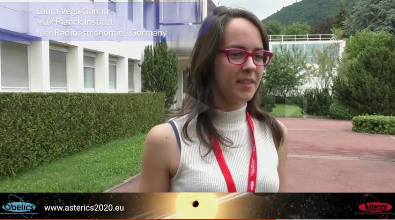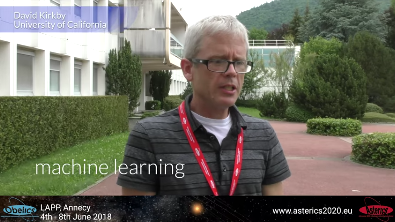ESCAPE Data Science School 2022
Auditorium
LAPP
Registrations:
Registrations to the school are open from May 2nd to May 23st on a first arrived, first served basis with 51 seats for external participants. Note that this year's edition is on-site (LAPP, Annecy, France) only and won't be broadcasted live. Registration fees do not include travel costs.
More information regarding the school organization will be sent to participants after the registration deadline.
School Program: the program of the school is devoted to project development for astrophysics, astroparticle physics & particle physics. The aim of the school is to provide theoretical and hands-on training on Data Science and Python development:
- Coding environment and good code practices
- Version control and collaborative development
- Debugging and profiling
- Python packaging
- Scientific libraries for data science and analysis
- Machine learning
The school is held as a continuation of the Asterics/Obelics summer school and the ESCAPE Data Science school first edition.
Course duration: From June 19 to June 24 2022
Organisation: All necessary information will be sent to participants after the registration deadline
Communication: a slack community for the school is available for communication between participants, to ask questions to tutors, to get out, etc.
School venue: LAPP, Annecy, France
Accommodation Arrangements: All participants will be accommodated at the Centre Jean XXIII, at a walking distance from LAPP.
School Fees: See the registration page
Requirements: The school is open to all. However, basic knowledge of Python is required.
Previous editions of the school: ASTERICS 1st, 2nd, 3rd, ESCAPE 1st
Testimonies from students and tutors from second edition:
Who is organizing this school: LAPP is the organizing this school in association with ESCAPE partners, PRACE. This international school is being organized in the framework of ESCAPE.
What is ESCAPE: European Science Cluster of Astronomy & Particle physics ESFRI research infrastructures (ESCAPE) aims to address the Open Science challenges shared by ESFRI facilities (CTA, ELT, EST, FAIR, HL-LHC, KM3Net, SKA) as well as other pan-European research infrastructures (CERN, ESO, JIVE, EGO) in astronomy and particle physics. (https://projectescape.eu)
For more information visit https://www.projectescape.eu/about-us
ESCAPE partners: 31 European organisations with wealth expertise and experience on astronomy, astroparticle and particle physics, three fields contributing heavily to the final designs of the ESFRI projects.
These partners are committed to contribute to the construction of the data research open environment, which is represented by EOSC, and promote the application of FAIR principles for data stewardship. All partners help bringing together and engage a wide range of ESCAPE stakeholders.
More info: https://www.projectescape.eu/partners
About LAPP : Created in 1976, the LAPP is one of the 19 laboratories of the National Institute of Nuclear and Particle Physics (IN2P3). LAPP has about 150 researchers, professor, researchers, engineers, technicians, administrators, students and foreign visitors. The research carried out at the LAPP aims to study the physics of elementary particles and their fundamental interactions, as well as the exploration of the connections between the infinitely small and the infinitely large. LAPP is involved in LHC experiments with CERN (ATLAS, LHCb), neutrinos (STEREO,SuperNemo, Dune), astrophysics (HESS, CTA, AMS,LSST), Future colliders (ILC, CLIC) and gravitational waves (Virgo).
LAPP Website http://lapp.in2p3.fr/
LAPP Presentation video ( in English): https://youtu.be/Sk-xzDEiy7Q
LAPP Presentation video ( in French): https://youtu.be/uPSXV4rAYPw

